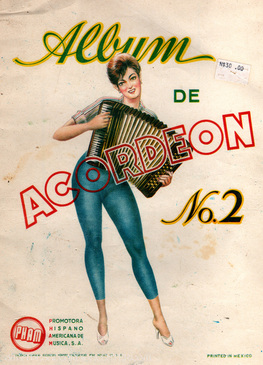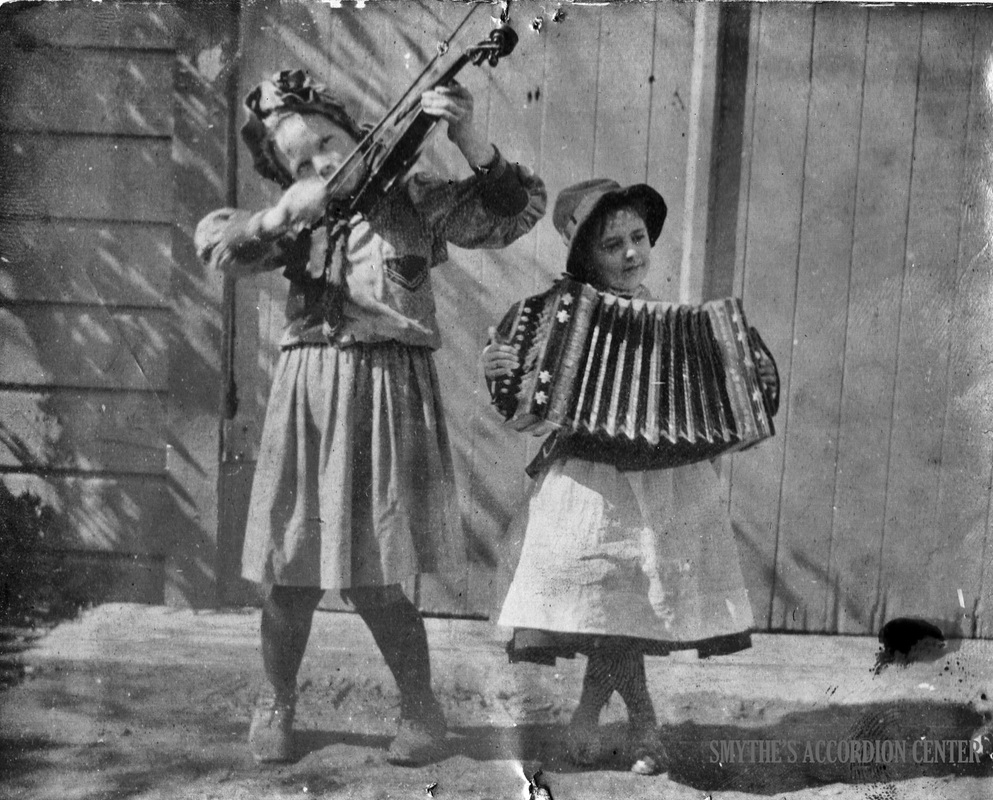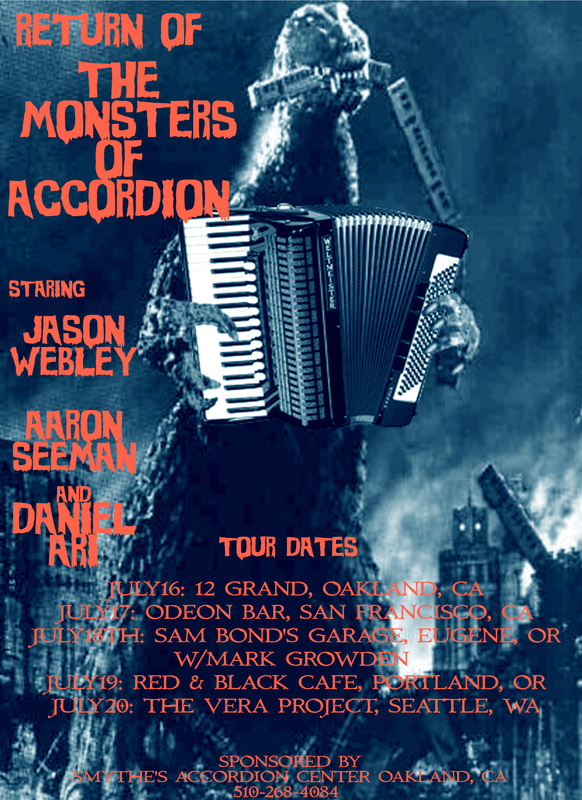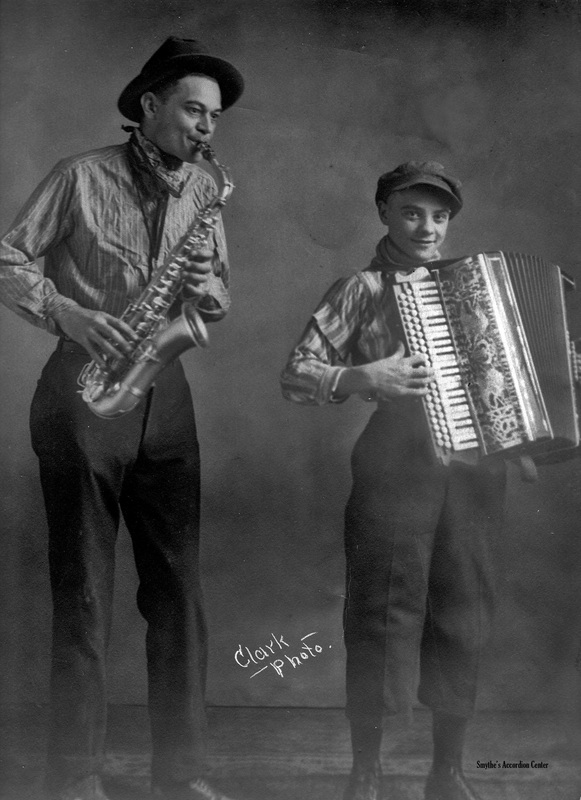F.A.Q.
|
Q: This accordion I bought off of e-bay doesn't seem to play very well.
A: Well, most likely, you got what you paid for. A full size accordion for $150 is probably in need of at least a tuning and rewaxing. Without playing the instrument first, you run a great risk. The thing about a used instrument purchased over the internet is it can difficult to determine problems without methodical investigation. When buying something from e-bay, etc., assume the worst and you usually get what you pay for. We do repairs and are happy to tune or even restore the instrument but keep in mind the expense. Please see our repair page for more information. Q: I have this really old accordion, who made it and when do you think it was made? A: Often on the back of the keyboard, it will show were it was made by stamp or engraving. There might also be a serial or model number. Unfortunately, since there is minimal access to factory records, we are often unable to decipher the meaning of these. Most instruments made before the 1960s are manufactured in Germany or Italy. Instruments from the 1940s and earlier might be from the USA, from San Francisco to NYC with Detroit and several other large cities having factories at that time. Many of these instruments are excellent but will most probably need to be refurbished, as the wax and leather valves age significantly. This can also lead to the often heard phrase" there seems to be something rolling around inside" ,as the reeds can come loose and fall out of the wax/rosin as it ages. Q: There seems to be something rolling around inside? A: The wax/rosin mix that the reeds are set in ages over time (about a 30-50 yr life span) so the reeds can come loose and fall out of the wax, rolling around inside the instrument. It is not a good idea to play an instrument in this condition as it can cause a lot of damage. Q: I have this really old accordion, is it worth anything? A: I recommend you search e-bay and other sites for an instrument similar to yours. We do not do over the phone appraisals. You are welcome to bring it in for appraisal (usually $50), this involves taking the instrument apart and seeing what what the condition and quality of the instrument is. We would be happy to repair or tune the instrument for you, the fee will be waived in this case. Q: Do you teach accordion? A: We now host in store lessons ,call for appointments. Refer to our links page, for links to local accordion clubs and fun bands. You can also call me at the shop and I will be glad to help find a teacher in your area. 510-268-4084 Q: Do you have any accordions that aren't so heavy? A: The weight of the accordion is directly proportional to the number of keys or buttons and banks of reeds. If weight is an issue, it may make sense to have more than one instrument that has been selected for its particular function, i.e. musette only, other than an instrument that has multiple functions. Fewer parts means less weight. Instruments that have fewer keys and buttons can weigh much less, but are more specialized and limited in what can be played on them. A 72 bass instrument is the smallest that will have all 12 notes of the scale plus chords on the left. These are popular with students, and musicians that travel a lot. If you play folk music you may find that an instrument with fewer keys would work out, but someone who plays jazz would probably prefer a full size keyboard with more banks of reeds. Up to 5 banks of reeds are available. The more reeds, the heavier the instrument, but the more tone options you get A 41 key 120 bass 2 reed instrument will weigh about 17-19lbs and a 4 reed tone chamber model about 24-28 lbs. Q: Do you have an accordion for around $200.00? A: Accordions are very complicated instruments and it is not possible to build something that would work in that price range. A student two reed 120 bass accordion cost about $265 to $545 in 1955, this works out to about $3000 to $5000 in todays dollars. We have some toy/playable instruments that are priced from $24 to $45. They will have a limited octave range and aren't very durable, but they are fun to mess with. Restored 120 base Italian Student Accordions usually start around $795. These are often quite good and can often be all the instrument you may need. These are also often available with narrower keys that children and people with smaller hands find accommodating. Another option is a rebuilt a better grade used Italian or German instrument. These can be purchased rebuilt for around $1450.These will have 3 reeds in either LMM or LMH and can be of very good quality ,in many cases there is no modern equivalent. A budget option is a Chinese Accordion, 32 base models, which start around $495,Chinese instruments have been tuned and serviced in myshop, and I often have restored Italian 12 base instruments for around $495 (completely rebuilt). All the new instruments we sell in our store (toys not included) have been inspected and serviced and come with a warranty regardless of where it was made ,and all used instruments have been rebuilt to our demanding specs. Q: I see cheap new accordions online. Why shouldn't I buy one of those? A: When you buy an instrument online, it can be risky - even if new. An accordion has thousands of parts and just because an instrument looks okay from the outside, it may need serious work on the inside. Often there are no warranties given by the seller or they do not have the ability to service what they sell. At many online only stores, even though it may seem cheap there could be much greater expense down the line. It costs $50 to $150 ship an accordion (weight,size and distance are a factor) and larger accordions are not that happy with repeated shipping. You can end up paying more for shipping than the repair. Also, it is very hard to guess what a instrument is going to feel or sound like from a picture or a even a video. At Smythe's Accordion, every instrument sold is given a warranty and trade up policy if you desire a instrument with different/more features later. Please feel free to call and ask about any accordions you see in our catalog and we will do our best to match you with a ideal instrument. Q: What's a tone chamber? A: Also called a "cassotto," a tone chamber is a second set of valve pads in a long wood or aluminum box under the grill of an accordion (this looks like a deep slot when viewed from under the grill). One or two of the reed banks are mounted inside (usually the clarinet or middle octave reeds and/or the bassoon or low reeds). The chamber takes the metallic reedy edge off the sound and suppress the harmonics, sometimes in case of the "clarinet" reeds (that often come as a pair of reed banks on larger instruments), one bank will be in the chamber and one outside so that the player has a choice. Tone chambers add to the weight and expense of an accordion. Q: What is a "free bass" accordion? A: Most accordions have buttons on the bass side that play pre-set chords set up in the circle of fifths. On a "free bass" instrument the buttons only play individual notes — the chords must be constructed like on a piano. This gives the player freedom to do chord inversions or come up with more variety of chords than can be gotten otherwise. It also allows playing of melodies in the bass. A few accordions are free bass only. Others allow for switching back and forth between free bass and standard pre-set chords. Q: What is "wet tuning?" A: When one bank of reeds of the same octave is tuned slightly off from another, a beat or fluctuation of sound results. This gives a distinctive character to the sound and is frequently used in certain folk music. The "wetter" the tuning, the more pronounced the beating. Sometimes three reed banks are used: one stays at pitch, one is tuned slightly higher, the other slightly lower. The result is sometimes referred to as "continental musette" or "true musette." Many older Italian accordions have a very slight de-tuning of one reed bank, creating a subtle chorus effect this is the most common instrument in the US.. Larger instruments with multiple register switches will give the player a choice whether to play "wet" or "dry." For more specialized questions, we are happy to try and answer them, Send email to Smythe's Accordion Center. NOTE: We cannot do appraisals via email or phone. |



